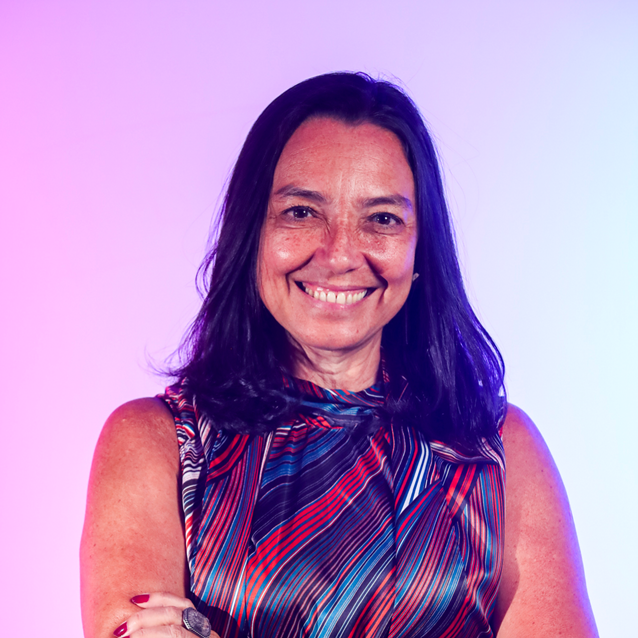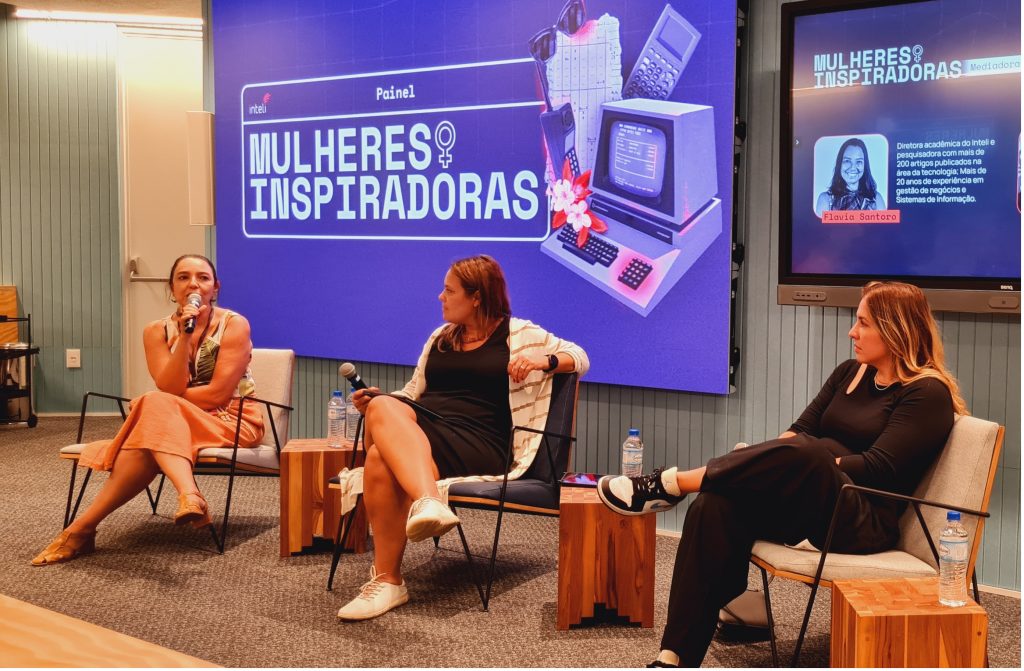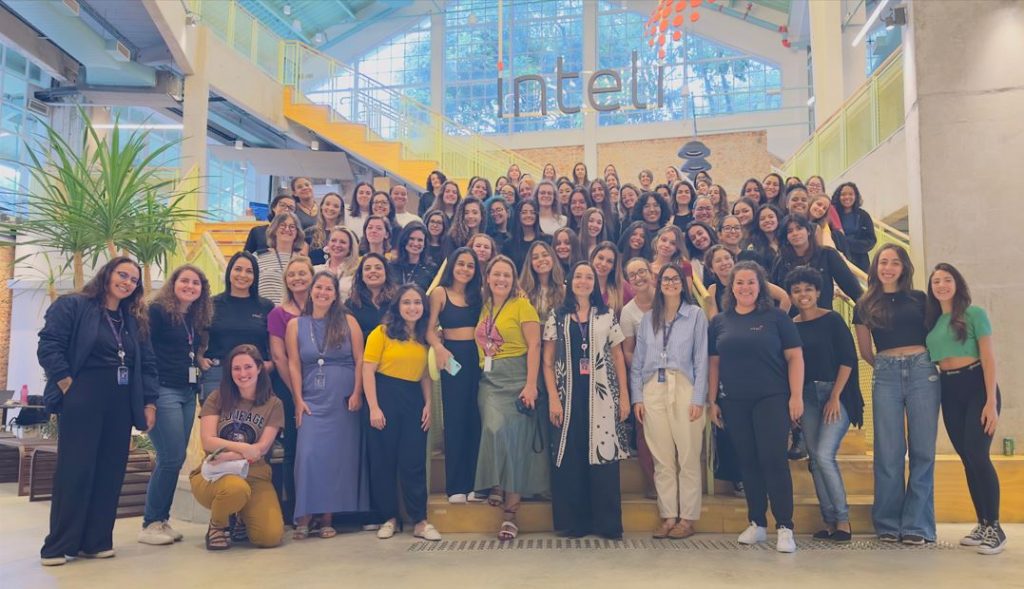In the month in which we celebrate the social, political and cultural achievements of women, we are very proud to highlight the story of one of the professionals responsible for getting the Inteli project off the ground.
With you, Flavia Santoro.
From the market to academia

Thirty-five years ago, Flavia began her journey into the fantastic world of computing. Determined to work from an early age, she studied Electronics at CEFET/RJ, and then Electronic Engineering at UFRJ - in a class of 50 men and only two women. "I was never intimidated, even when some teachers said it wasn't a girl's place. I continued to study hard and seek my place," she recalls.
Right after college, Flavia got her hands dirty and worked at a historic moment for the country, at COBRA Computadores. "At that time, the protectionist policy of Law 7.232 didn't allow computers to be imported, so we produced the equipment here," she says.
After starting a company focused on infrastructure and software development, Flavia fell in love with the academic world. During her master's and doctorate at UFRJ, she began practical research focused on collaborative learning and business process management, and gradually moved into the classroom. And where does this passion for education come from?
"My mother has always been my inspiration. Back in the 1980s she opened a school for children and decided to put project-based learning into practice. The space was inclusive and diverse, and I grew up in that super innovative environment," she reveals.

Teacher, researcher, consultant and ...mother!
Everything happened at once in Flavia's life. A mother of two, she has always reconciled her career with motherhood. "I don't think there is a right time because there will always be something going on in your life. My family has learned to live with the fact that I have a career and work. And it's always been worth it," she says.
While her children were growing up, Flávia was fulfilling her dreams, such as a post-doctorate at the Pierre et Marie Curie Paris VI University in France and the Queensland University of Technology in Australia. She continued to travel the world organizing workshops and conferences until the day two friends, Ig and Seiji, presented the Inteli project - a technology college with a totally project-based teaching methodology. It was love at first sight.
"I was absolutely delighted to be able to put into practice everything I already did individually with my students, now in an institutional way," says Flávia.
With years of research under her belt, such as her doctorate "A Cooperation Model for Project-Based Learning", Flavia joined the academic team responsible for designing a completely disruptive college from scratch. Inteli's Project Based Learning (PBL) is based on a real problem in which students are challenged to develop a prototype of a product or a solution, using the curricular content of the course. In this process, they always work in groups and learn collectively and collaboratively.
"We haven't invented the wheel, because project-based learning has been around for a long time. What is super innovative is putting the methodology into practice at a high level of excellence with teams that are prepared and passionate about education and their work," he says.

Women, the world of technology belongs to you too!
"The lack of female representation in many areas of technology can make women feel discouraged from entering the field. In addition, there are unconscious biases and stereotypes that can lead to gender discrimination in the workplace.
But I'm still here, day after day, fighting and setting an example for other women. We need to be proactive, dedicated and never stop studying. It's important to always be engaged in the tech community to create networks of support and solidarity with other women in the field. We can support each other, share our experiences and knowledge and collaborate on projects.
I believe that women should feel confident and continue the fight for greater representation and inclusion in the field. Together, we can break down barriers and create a more inclusive and diverse environment in technology."







